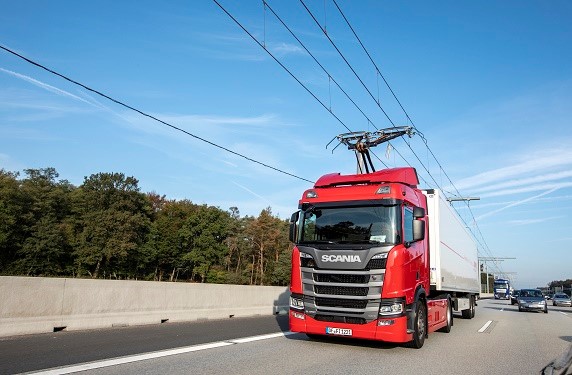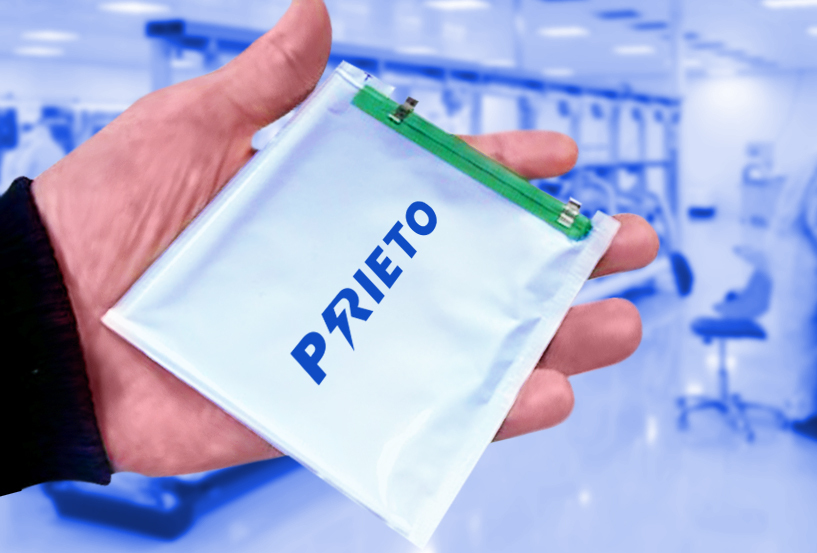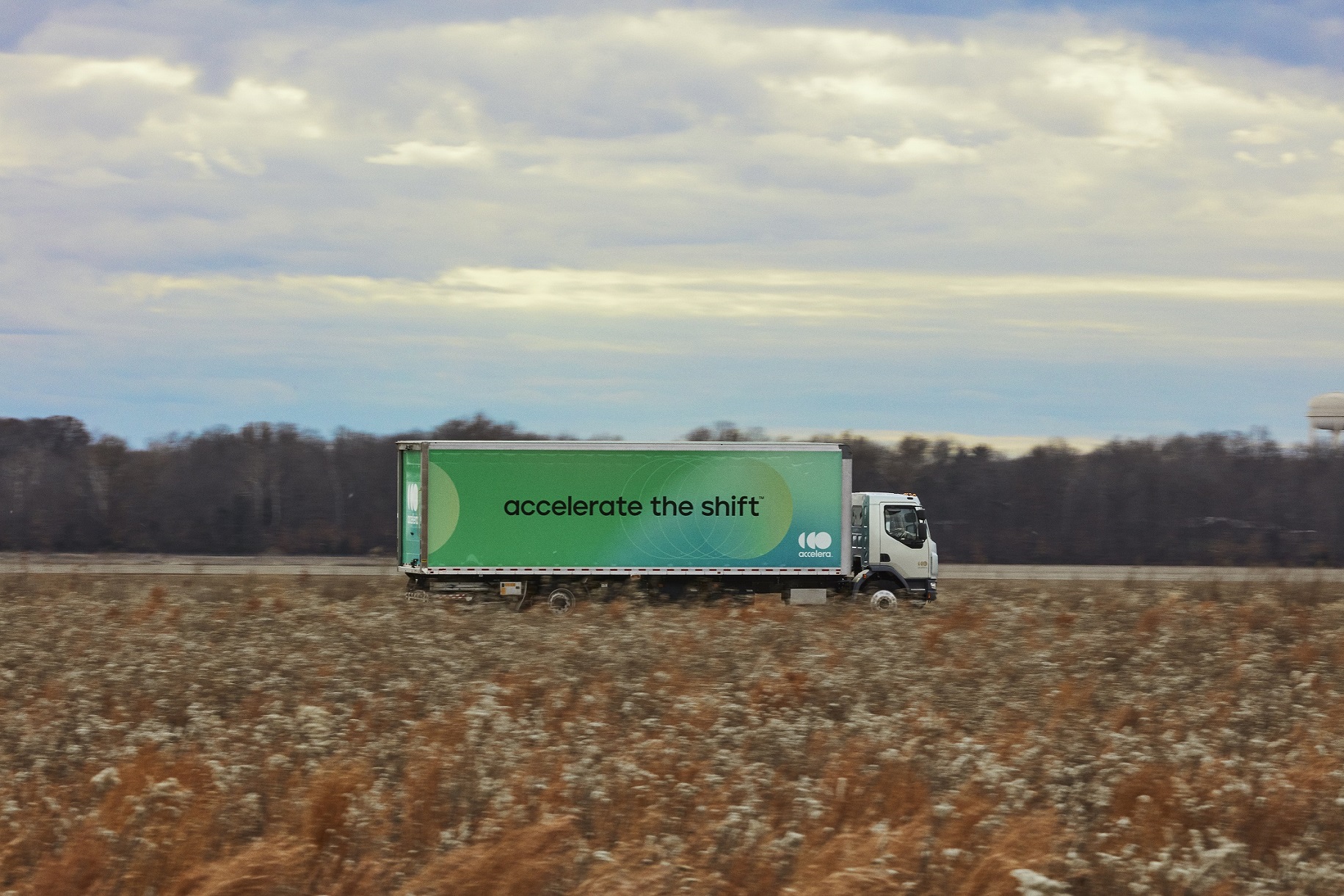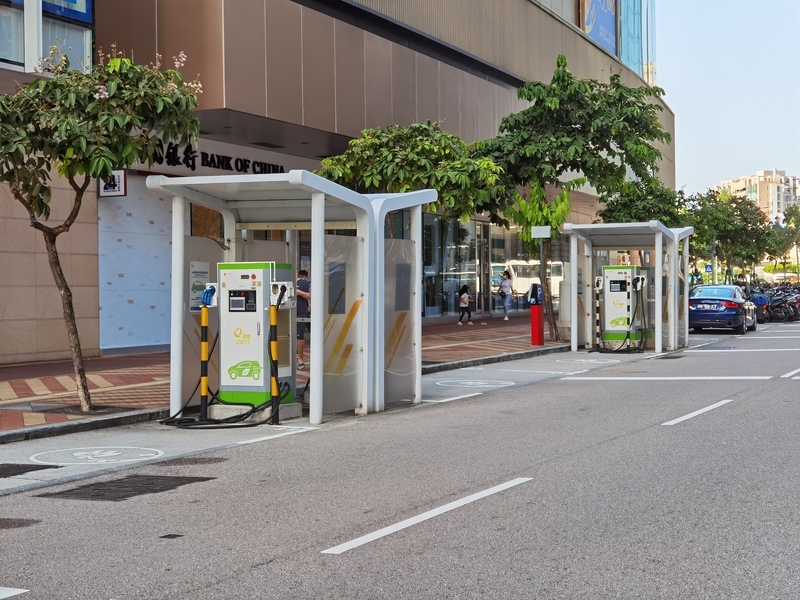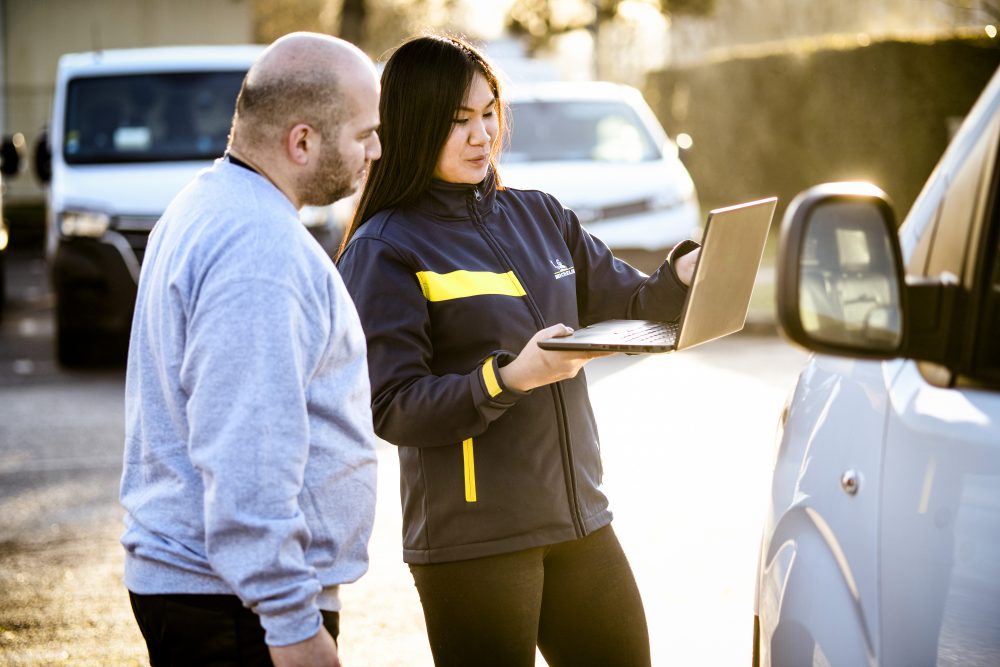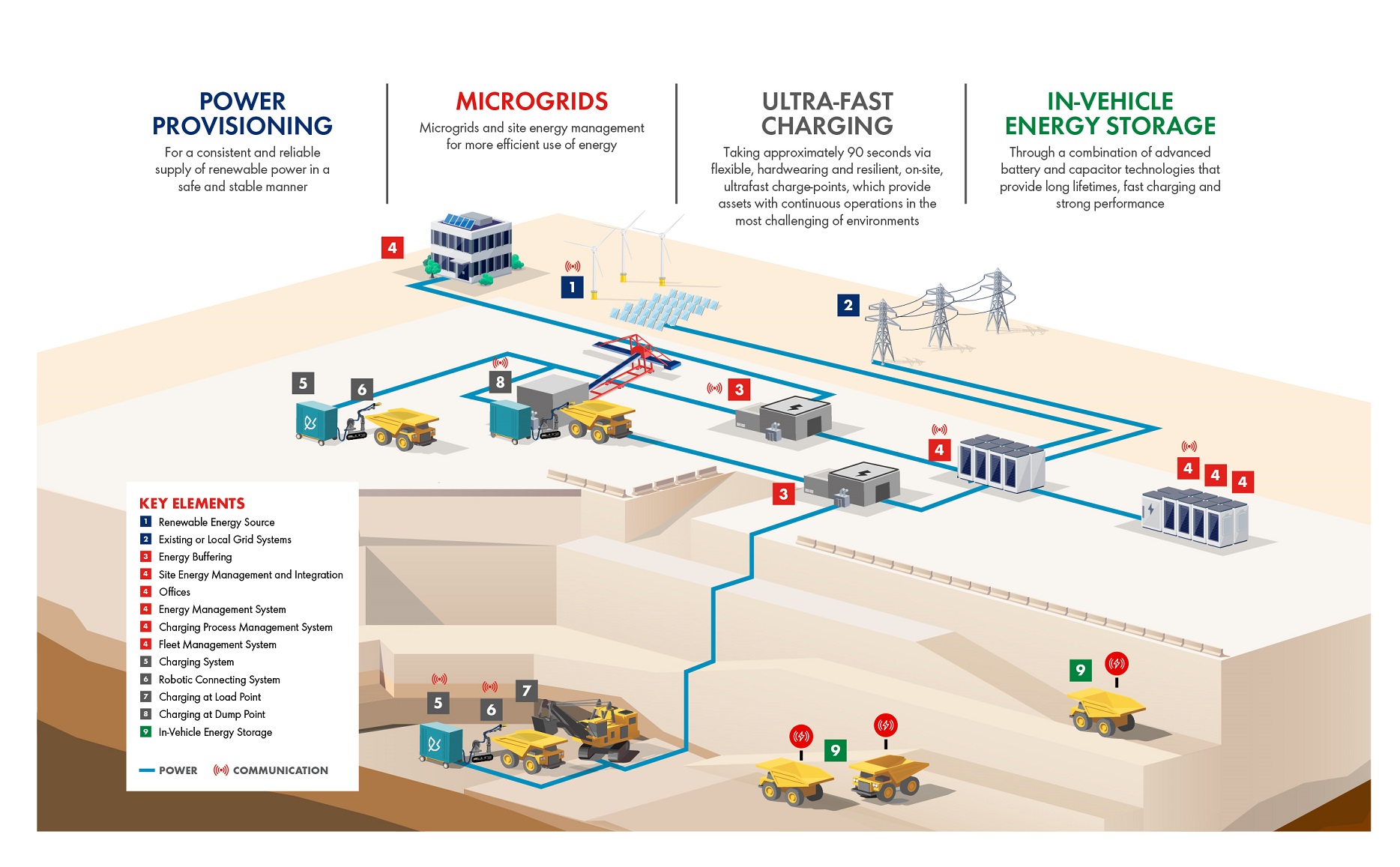
The nine-member consortium's offering - Shell’s Mining Electrification Solutions for Off-Road Vehicles - is aimed at helping the mining industry decarbonise, by reducing emissions without compromising on operational efficiency or safety, while aiming to be cost competitive versus diesel-powered operations.
In addition to Shell, the members are Skeleton, Microvast, Stäubli, Carnegie Robotics, Heliox, Spirae, Alliance Automation and Worley. The pilot offer combines a high-powered battery solution with ultrafast charging and a standardised micro-grid energy system where the required solution can be complemented with renewable electricity generation on-site or through the grid.
Grischa Sauerberg, vice president, sectoral decarbonisation & innovation at Shell, said the solution was "absolutely" applicable across the quarrying and aggregates sector.
"The solution we are building is designed for 220-tonne trucks, but the components can also be scaled based on the truck size that you need to electrify and to charge," Sauerberg added. "So it can be used for smaller vehicles with smaller battery packs as well."
He added that the solution is also suitable for use in construction, forestry and marine applications.
Shell states that the new SuperBattery used in the solution - produced by German-headquartered fast energy storage company Skeleton - can charge with an energy transfer of 400kw hours in 90 seconds, much faster than a lithium-ion battery.
A prototype of the solution is planned to be on the ground for testing at Shell's research centre in Hamburg, Germany next year. Shell says it will conduct field tests at mining customers in 2024 with the aim for the offering to become commercial and scalable in 2025.
As an alternative energy source, Shell says electrification offers off-road industries the immediate potential to shift away from a long-standing reliance on diesel. It adds that, for hard-to-abate sectors like mining, this is critical. According to consulting firm McKinsey, mobile equipment comprises between 40 and 50% of mining’s CO2 emissions, and by 2030 it is estimated that a battery-electric haulage truck will lower total cost of ownership (TCO), involve 20% lower maintenance costs, and incur 40% lower fuel costs than existing diesel trucks.
“It is increasingly clear that no one, single organisation can solve decarbonisation alone,” said Sauerberg. “The need for a collaborative effort is particularly evident within carbon-intensive industries like mining, where the challenges are great but the opportunities are even greater. To overcome these challenges and unlock these opportunities, Shell is helping to bring together some of the sector’s most innovative companies – with electrification proving an important first step towards the shaping of a clear decarbonisation pathway.”
Shell’s Mining Electrification Solutions for Off-Road Vehicles has three major elements.
Power provisioning and microgrids, designed to provide a consistent and reliable supply of renewable power in a safe and stable manner.
Ultra-fast charging that takes approximately 90 seconds via flexible, hardwearing and resilient, on-site, ultrafast charge-points, which are designed to provide assets with continuous operations in the most challenging of environments.
In-vehicle energy storage, through a combination of advanced battery and capacitor technologies, that aim to deliver long lifetimes, ultra-fast charging and high performance.
Shell says operators will benefit from a solution that is end-to-end, covering the full journey of the electron from generation to delivery in the drive train.
The solution is also interoperable between different original equipment manufacturer (OEM) make and models.
“The challenge of decarbonisation is immense, but not impossible – providing collaboration and innovation go hand in hand at all times,” said Sauerberg. “Both of which were on show during the recent Charge On Innovation Challenge, which saw the Shell-led consortium of equipment manufacturers, technology partners, industry experts and Shell Energy – our in-house supplier of renewable power - push the boundaries of what is possible for hard-to-abate sectors like mining. Our winning solutions are proof of how, together, the industry can help power progress by realising the full potential of the technologies available to us – whether that is through electrification, digital tools or low-carbon fuels.”
Sauerberg said Shell is no longer just an oil and gas provider and can now be described as an energy transition company.
He added that the consortium is planning further developments including shortening charging times and extending the lifecycle of in-vehicle batteries.

Sebastian Pohlmann, VP automotive and business development at Skeleton Technologies, said the greatest challenge in the electrification of mining trucks and other heavy-duty applications is in ensuring the machine is working most of the time and not standing in a corner charging.
He added that the consortium's solution providing fast charging technology offers a solution to this issue: "Today's lithium-ion batteries have a problem with that, you cannot charge them that fast," says Pohlmann. "That means you need a larger battery system than you would normally install. Today's most common lithium-ion batteries use materials such as cobalt and nickel which are not available for example in Europe. We know that these materials can create sustainability issues."
He said that, as opposed to electric cars which might be used a couple of hours a day, mining vehicles are ideally used for up to 24 hours a day to be fully utilised in a business case.
"These are the challenges we are trying to address with our new energy storage technology," Pohlmann said. "The key advantage of SuperBattery is how fast the charging is. It charges around 100 times faster than a Lithium-ion battery, in 90 seconds rather than 90 minutes. That means that you don't need a dedicated charging point or time any more. You can recharge at points where the vehicle is stopping anyway during its haul cycle."
Pohlmann says that the SuperBattery is a new technology which has been developed from supercapacitors. He adds that the battery has shown 50,000 lifecycles in industrial cells. It is free from cobalt, nickel, and graphite, and uses aluminum foil instead of copper.
"SuperBattery industrial cells have been proven to be safe even when crushed, overheated or pierced," says Pohlmann. "Today we can supply industrial cell samples, and we plan to start production of the cell and module products by the end of 2024."
A spokesperson for Shell said the solution is for off-road vehicle charging and there are no plans at the moment to use it for on-road electric vehicle charging applications.
This article first appeared in our sister publication Aggregates Business


